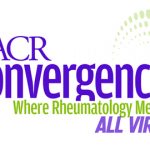Many people with rheumatic diseases don’t receive the treatment they need simply because they don’t have easy access to a rheumatologist, and the problem is only expected to get worse. According to a study on the rheumatology workforce, the demand for rheumatology services is expected to increase 46% between 2005 and 2025. In that same time period, the number of practicing rheumatologists is expected to go up only 1.2%. Therefore, the task of treating people with rheumatic diseases is increasingly being taken on by health professionals, such as physician assistants and nurse practitioners. In fact, since 2004, membership in the Association of Rheumatology Health Professionals (ARHP) has increased by about 30%.
To ensure health professionals are prepared to treat people with rheumatic diseases, the ARHP has developed a series of online courses that provide health professionals with the necessary training and education. Although the courses provide valuable instruction, the cost can deter potential participants who would greatly benefit from taking them. The Rheumatology Research Foundation is helping health professionals who most need the training get over that hurdle with its Health Professional Online Education Grant. The grant covers the cost of registration for one of the two courses offered by the ARHP. To date, the Foundation has awarded 11 grants. Two nurse practitioners who received it say that thanks to the grant and the courses, they are already providing better care for their patients.

Monica C. Richey, MSN, ANP-BC, GNP, BSN, received the Health Professional Online Education Grant last year. Shortly after that, she signed up for the ARHP’s Advanced Rheumatology Course. Richey, a nurse practitioner in the Division of Rheumatology at the Hospital for Special Surgery in New York, says she had wanted to take the course for years but couldn’t afford it. “I knew I would need assistance paying for the course,” she explains. “So when I heard about the grant, I jumped at the opportunity.”
Richey says she learned so much that will be beneficial for her patients. “I am able to differentiate between several diseases and tell when it is a dual diagnosis. It has also opened my eyes to other treatment possibilities and therapeutic approaches, such as physical therapy.”
Richey says she was able to put her new knowledge to use when she saw a patient who had inflammation in her joints but had been told she had osteoarthritis. “She had every symptom of inflammatory joint issues, but her labs were always normal. … With the knowledge I gained from the course, I was able to diagnose her with a seronegative arthropathy, joint inflammation with a negative rheumatoid factor, and start her on the right treatment. She is feeling great now, has returned to work and has a much better quality of life.”



